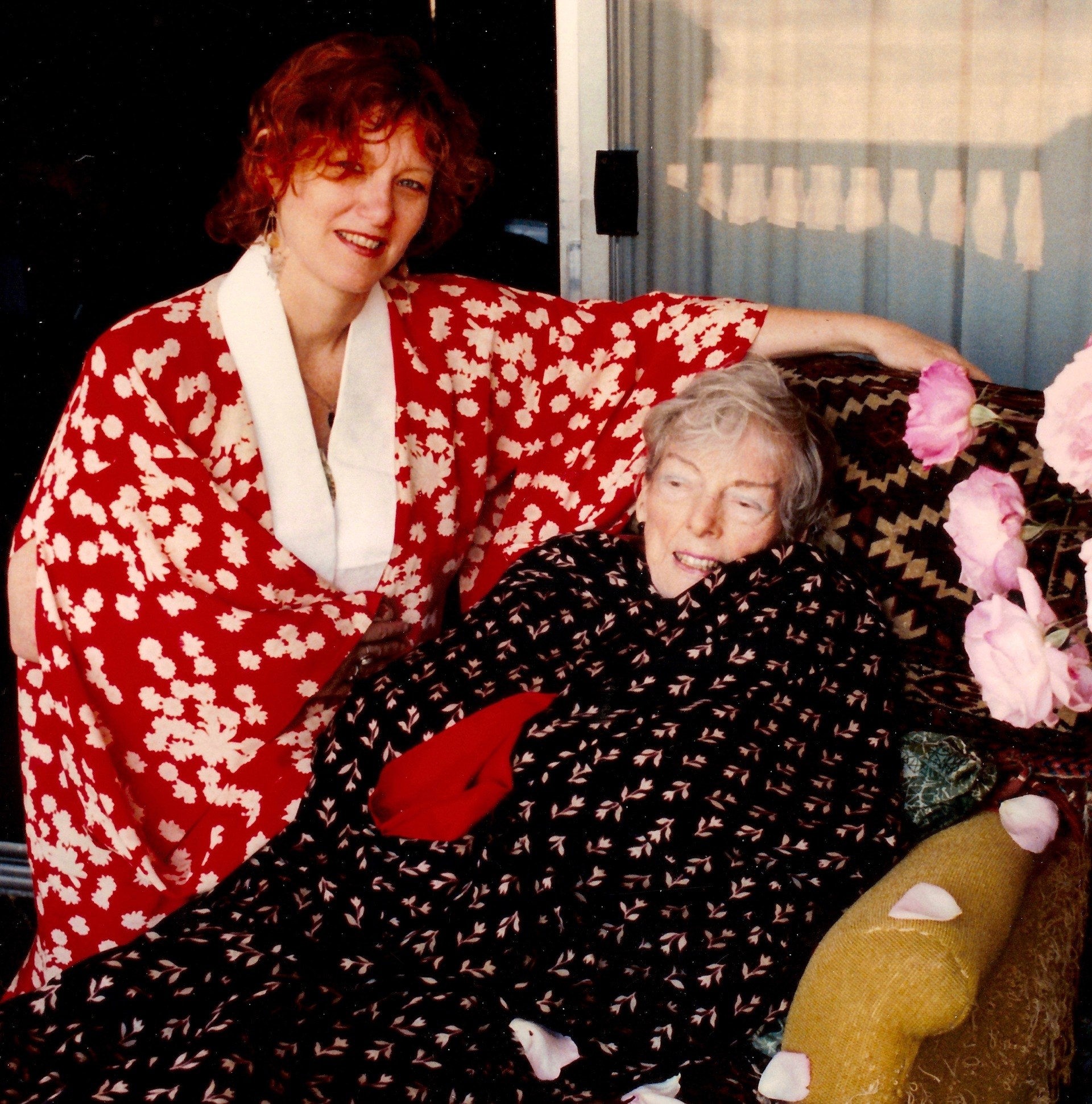Not long before M. F. K. Fisher died, a friend called to say she thought Mary Frances’s diet was lacking in interest and diversity. The nurses who cared for her also prepared her food, my friend explained, and Mary Frances was growing weary of their bland purées. If I had the time, she suggested, I might want to do a little cooking for my friend.
I spent the next afternoon reading cookbooks and gathering ingredients. Not being one who makes refined French fare very often, I used Madeleine Kamman’s books for inspiration and the results pleased me. Soon my kitchen was filled timbales, flans, and delicate souflés. A mousse of chicken and morels was delightful; an aspargus timbale had great charm; something smooth and creamy and full of leeks was wonderful even if I have forgotten the details. Ah, but the carrots—grated, sautéed, and puréed into a creamy pudding flavored with Pernod, now this I found truly inspired. I made an extra timbale for myself and when I returned from delivering my creamy bounty to Mary Frances, I ate it with slow sensual pleasure. The flavor of licorice infused every bite, wrapping itself around the sweetness of the carrots. Mmmm, absolutely heavenly, I thought, and hoped that my friend would share my pleasure.
How was I to have known?
A few days later, I received a note thanking me and praising everything except the carrots. She had grown weary of them as a child, she said, and had never regained her taste for them. I admired her feistiness, was pleased that in spite of her failing health she not only continued to have strong opinions but that she also voiced them. I regretted that I hadn’t chosen something more to her liking, but how was I to have known?
A few days later, a spring storm sent me to the couch with a blanket and a tattered copy of Fisher’s With Bold Knife and Fork, a book that has been a pleasant companion for years. I know it well, or so I thought until that cozy afternoon by the fire.
“Carrots,” I read, “. . . there is nothing I can say that has not been said better elsewhere . . . I think they are shockingly horrid disguised as puddings . . .” So much for regarding myself as a careful reader, for surely I had read this passage several times and merely forgotten it that spring day in the kitchen when I was so pleased with myself when I found a bottle of Pernod in the pantry.
Contemplating my fate
I laughed out loud, and wondered if she thought of this chapter as her nurse offered a spoonful of my misguided timbale. Perhaps she rolled her eyes as best she could, and thought about good intentions and the indignities of aging, as I think of them now. Should my health someday fail and leave me in the care of skilled strangers, will I be forced, as I was as a child, to eat foods that I find truly horrid? Will a well-meaning but overworked nurse use the tip of a teaspoon to pry open my stubborn lips and fill my mouth with oatmeal? As a child, I hid under the kitchen table to avoid eating it, one of many battles in the long war my mother and I waged over hot breakfast cereal. Eventually I won. It is not a victory I have ever taken for granted but it is certainly a battle I have assumed was over, assumed that is, until I read those few lines about carrots, considered my culpability and thought ahead to several decades from now. I tugged the quilt up under my chin and moved closer to the fire, pondering my fate.
This article was originally published by Michele Anna Jordan and appears here by permission of the author.




